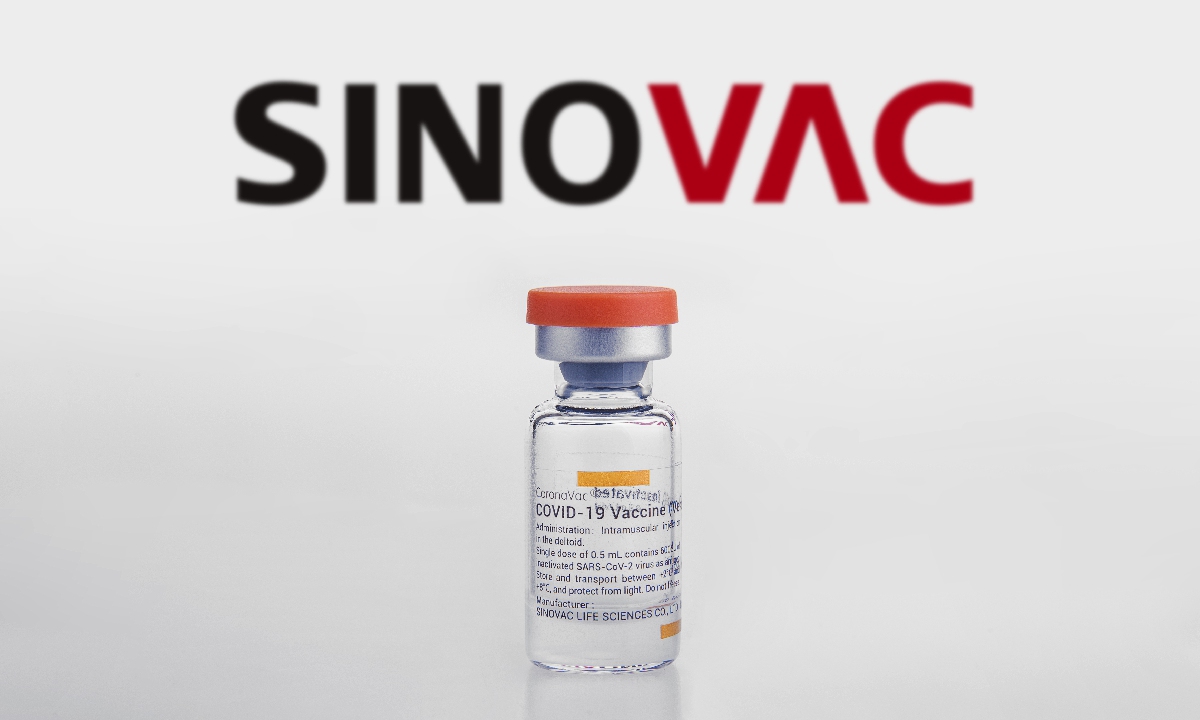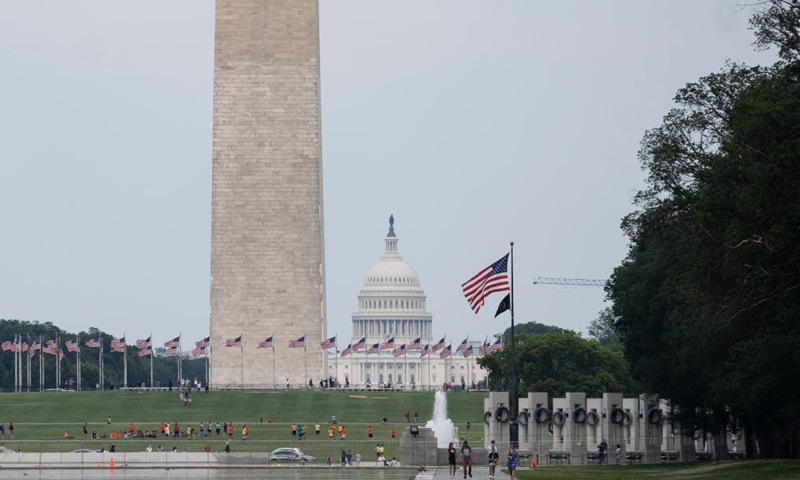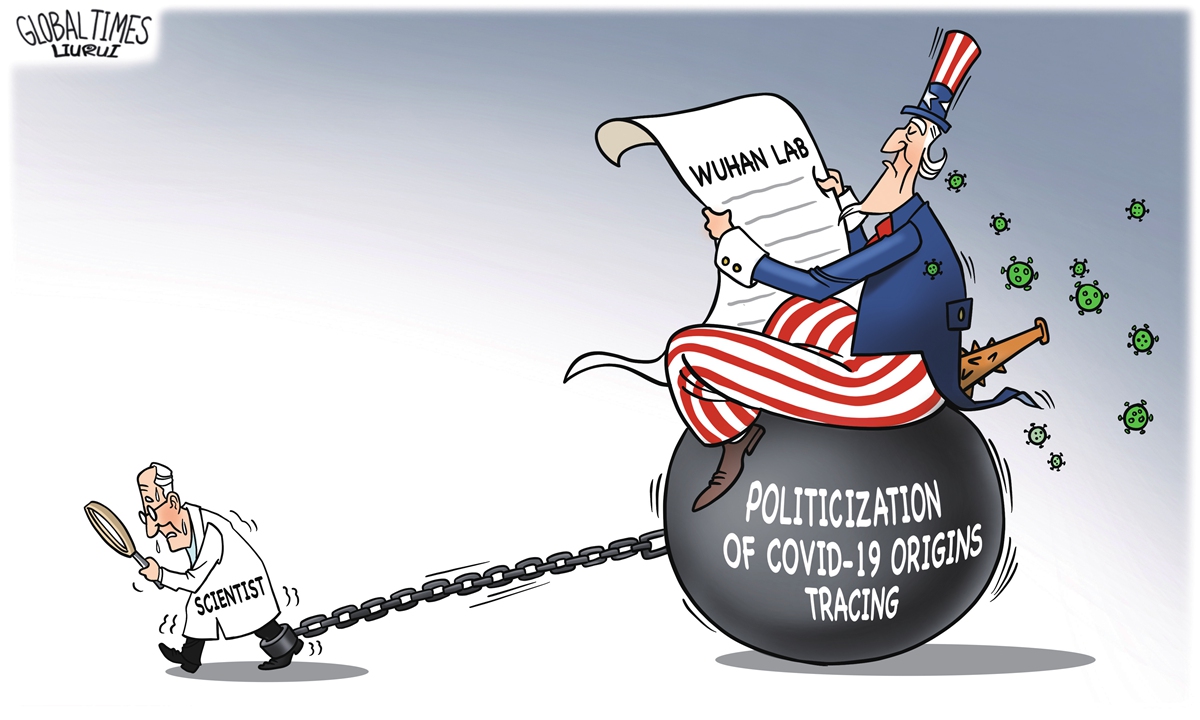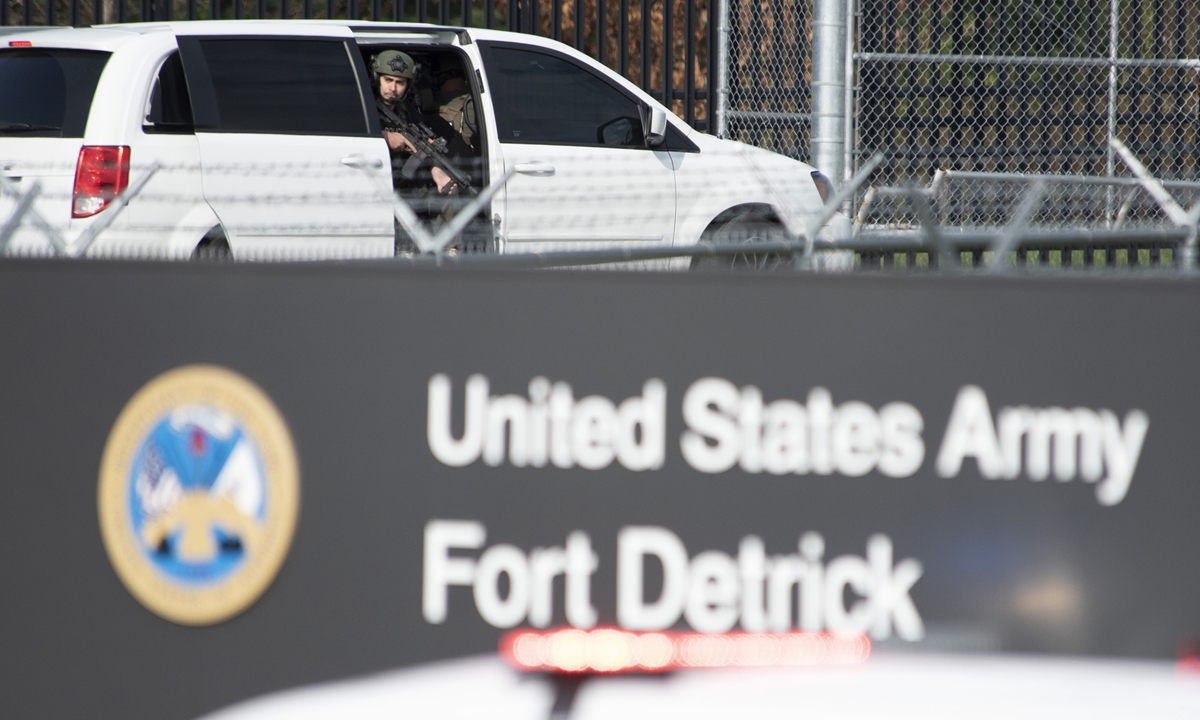PETALING JAYA: Covid-19 restrictions will be eased starting Tuesday (Aug 10) for those who have been fully vaccinated, announces Tan Sri Muhyiddin Yassin.
The Prime Minister said that among the restrictions being lifted were inter-district and interstate travel for long-distance couples, and prayers in houses of worship as well as the ban on dine-ins (for states under Phase Two and above of the National Recovery Plan).
Muhyiddin also said the Covid-19 digital vaccination certification will be used to verify an individual's immunisation status to the authorities.
He explained that individuals would be considered fully vaccinated 14 days after receiving the second dose of either the Pfizer, AstraZeneca or Sinovac vaccines, and 28 days after being jabbed with the single-dose Johnson & Johnson or CanSino vaccines.
Parents who are fully vaccinated will be allowed to travel across borders and states to meet with the children below 18-years-old, he added.
Long-distance married couples who are fully vaccinated will be allowed to travel across districts and states to meet each other, he said.
He said individuals who wanted to travel across borders must show their digital Covid-19 vaccination certificate to enforcement officers manning roadblocks.
At the same time, Muhyiddin also said that for all states, fully-vaccinated Muslims will be allowed to perform solat prayers in mosques and suraus.
Mosque and surau authorities must ensure that SOPs are strictly adhered to at all times and Muslims who come for solat prayers must show their digital Covid-19 vaccination certificate.
He also said the same applies to non-Muslims, where they will be allowed to visit their respective places of worship.
"The implementation of this at non-Muslim places of worship is subjected to the purview of the respective state religious authority and also the National Unity Ministry."
Muhyiddin also advised Malaysians to only dine-in when they need to, and choose premises with good ventilation systems.
"I would also like to propose to food premises operators to prepare more outdoor eating spaces in order to ensure good ventilation.
"We understand that the risks of spreading Covid-19 is high in indoor premises compared to outdoors."
Muhyiddin also said married couples who were fully vaccinated and would like to bring their children below the age of 17 along for dine-ins must strictly abide by the SOPs.
The Prime Minister also said sports without physical contact and recreational activities would be allowed in states under Phase Two of the NRP onwards from 6am to 10pm at outdoor and half-indoor areas.
Dine-ins at restaurants or cafes at clubhouse premises will be also be allowed and customers must show their digital vaccination certificate to verify immunisation status.
However, Muhyiddin said changing rooms and showers at clubhouse premises will not be allowed, in order to avoid groups gathering after sports which could cause the transmission of Covid-19.
The allowed sporting activities include jogging, exercising, taichi, cycling, skateboarding, fishing, equestrian, archery, hiking, singles tennis and badminton and golf, among others.
Meanwhile, Muhyiddin also said tourism activities involving homestays and hotels within the same state will be allowed.
"Homestay and hotel operators must ensure that those patronising their premises must show the digital Covid-19 certification to prove that they are fully vaccinated," he added.
Muhyiddin also said more details would be announced soon by the National Security Council (NSC).
He also said further easing of restrictions on economic sectors were currently being mulled by the government, and an announcement will soon be made.
Muhyiddin stressed that the loosened restrictions did not mean Malaysians can ignore SOPs to curb Covid-19, as there is still a high risk of contracting Covid-19 through dine-ins and sporting activities.
He said he has ordered the relevant ministries and agencies to ensure strict enforcement of SOP compliance in order to avoid Covid-19 infections.
"The government will not hesitate to retract all the loosened restrictions announced if there is non-compliance with the SOPs," he added.
If there were new infections at these premises, Muhyiddin said the Health Ministry will immediately take appropriate action such as risk assessment, which could lead to the closure of the said premises or compound notices to be issued.
Muhyiddin also stressed that Malaysians have a collective responsibility in combating Covid-19.
"The loosened restrictions are proof that the government is confident that Malaysians who received full vaccination doses can make their own risk assessment rationally.
"God-willing, we will win together," he said.
All states are under Phase 2 and beyond of the NRP except for Selangor, Kuala Lumpur, Negri Sembilan, Kedah, Johor, Malacca and Putrajaya.
Muhyiddin also said fully-vaccinated travellers from overseas coming to Malaysia, including Malaysians returning from abroad, will be allowed to self-quarantine at home.
Below is the full speech by the Prime Minister:
Share This
Wednesday, 11 August 2021
SOPs eased for fully vaccinated, here are the key points
Saturday, 7 August 2021
The race against Delta; Sinovac Sinopharm discovers potent antibody against Delta variant, effective in early treatment of COVID-19
Beware of external outbreaks
As cases rise, experts say it’s time to expand Operation Surge Capacity nationwide
With the Delta variant confirmed to be the dominant strain in the country, experts are calling for Malaysia to continue its vaccination drive – especially in states outside the Klang Valley – to outpace the highly-infectious Covid-19 variant.
Greater vaccination efforts are needed in states outside the Klang Valley, health experts say, especially with the Delta variant casting a shadow on the country’s recovery.
With about 98% of the Klang Valley adult population having received at least the first vaccine dose under Operation Surge Capacity, public figures and health experts say attention should now be focused on other states in Malaysia.
“About two months ago, the proportion of cases for Greater Klang Valley represented 60% to 70% of total cases in Malaysia.
“But now it is about 50% to 60%. The rise in cases is both nationally and in Klang Valley, so it’s not just the concern of the Greater Klang Valley but every other state in Malaysia,” said Health deputy director-general (public health) Datuk Dr Chong Chee Kheong.
He added that the strain on the healthcare system in Klang Valley was now more manageable, but other states were now at risk.
International Islamic University Malaysia epidemiologist Prof Dr Jamalludin Ab Rahman suggested roping in community leaders to help get people vaccinated, including manual registration for those without the Mysejahtera app.
“The state government can identify who (the community leaders) are and if they are from rural areas. The government must go to people rather than wait for them to register,” he said.
He said low vaccine registration rates in certain states such as Sabah (44%) and Kelantan (65%) could be due to a lack of knowledge or technology.
“However, we should also study if there are other reasons like misunderstanding about vaccine safety. If that’s the case, the government needs to engage them and educate them,” he said.
Universiti Kebangsaan Malaysia epidemiologist Assoc Prof Dr Azmi Mohd Tamil concurred that lower vaccine sign-up rates in certain states might not necessarily be due to vaccine hesitancy, but to the use of Mysejahtera.
“There are a lot of rural elderly Malays who have yet to register with Mysejahtera,” he said.
“There may be lower IT literacy and lower usage of the Mysejahtera app. Lower broadband or Internet penetration could be a problem too.”
As of Thursday, about 65% of adults in Malaysia have received at least one dose.
However, Sabah still has a relatively low vaccination coverage with about 37% of adults receiving at least one dose, with Kedah and Kelantan showing only slightly higher numbers at 43%.
To ramp up vaccination rates, Medical Practitioners Coalition Association of Malaysia president Dr Raj Kumar Maharajah said doubts that the public might have on the vaccination programme must be addressed.
“There are questions over the efficacy of the vaccines, especially with reports on empty shots and breakthrough infections.
“People are wondering why they need to get vaccinated when people are getting infected. As such, we need public assurance from the government.
“We need to know the vaccination history of the Covid-19 fatalities, or the proportion of vaccinated individuals who went on to Category 4 or 5,” he said.
He added that the government should mobilise the over 7,000 general practitioners (GPS) across the country to aid the vaccination programme.
“The government is not using the GPS to the fullest. They should rope them in, and we must cut down on the number of mega vaccination centres,” he said.
The Star Malaysia
by JOSEPH KAOS JR and CLARISSA
China's vaccine producer Sinopharm discovers potent antibody against Delta variant, effective in early treatment of COVID-19
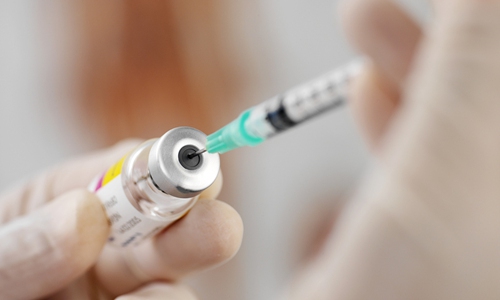
The team, led by Yang Xiaoming, Chairman of Sinopharm China National Biotec Group, a Sinopharm subsidiary, found a monoclonal antibody which can effectively block the binding of novel coronavirus to the Angiotensin-converting enzyme 2. This enzyme is attached to the membrane of cells located in the intestines, kidney, testis, gallbladder, and heart and the antibody can prevent the virus from infecting cells, the company announced on its official WeChat account.
Monoclonal antibody, as a targeted therapy drug, has a strong specificity, significant efficacy and low toxicity. Known as the "biological missile", it has shown excellent efficacy and broad application prospects in the treatment of a variety of diseases.
The application of the antibody, called 2B11, can also significantly reduce the pulmonary inflammation caused by virus infection.
The Delta variant has become the main variant in global transmission of COVID-19 and is also the prevailing variant in China. Recent studies showed that 2B11 had a highly consistent neutralization activity against the Delta variant, suggesting that it has great application value in short-term prevention and early treatment of COVID-19 caused by this variant.
The company said the clinical application of the 2B11 antibody is progressing an orderly manner with hopes that it can be used in the prevention and control of COVID-19 in China as soon as possible. The research is expected to be a useful weapon against virus mutation.
Source link
Sinovac to submit application for clinical research and emergency use on vaccines against Gamma and Delta variants in several ountries: company CEO
China's Sinovac will submit an application in several countries for clinical research and emergency use on vaccines targeting the Gamma and Delta variants, Sinovac CEO, Yin Weidong, said on Thursday during a forum on international cooperation on COVID-19 vaccines hosted by Chinese State Councilor and Foreign Minister Wang Yi.
MOH: Too soon to ease restrictions | The Star
Related posts
Dangerous period of the pandemic: WHO warns over deathly Delta variant of the coronarirus
Covid-19 cases in Malaysia expected to continue to rise, says deputy Health D-G
The race against Delta; Sinovac Sinopharm discovers potent antibody against Delta variant, effective in early treatment of COVID-19
Beware of external outbreaks
As cases rise, experts say it’s time to expand Operation Surge Capacity nationwide
With the Delta variant confirmed to be the dominant strain in the country, experts are calling for Malaysia to continue its vaccination drive – especially in states outside the Klang Valley – to outpace the highly-infectious Covid-19 variant.
Greater vaccination efforts are needed in states outside the Klang Valley, health experts say, especially with the Delta variant casting a shadow on the country’s recovery.
With about 98% of the Klang Valley adult population having received at least the first vaccine dose under Operation Surge Capacity, public figures and health experts say attention should now be focused on other states in Malaysia.
“About two months ago, the proportion of cases for Greater Klang Valley represented 60% to 70% of total cases in Malaysia.
“But now it is about 50% to 60%. The rise in cases is both nationally and in Klang Valley, so it’s not just the concern of the Greater Klang Valley but every other state in Malaysia,” said Health deputy director-general (public health) Datuk Dr Chong Chee Kheong.
He added that the strain on the healthcare system in Klang Valley was now more manageable, but other states were now at risk.
International Islamic University Malaysia epidemiologist Prof Dr Jamalludin Ab Rahman suggested roping in community leaders to help get people vaccinated, including manual registration for those without the Mysejahtera app.
“The state government can identify who (the community leaders) are and if they are from rural areas. The government must go to people rather than wait for them to register,” he said.
He said low vaccine registration rates in certain states such as Sabah (44%) and Kelantan (65%) could be due to a lack of knowledge or technology.
“However, we should also study if there are other reasons like misunderstanding about vaccine safety. If that’s the case, the government needs to engage them and educate them,” he said.
Universiti Kebangsaan Malaysia epidemiologist Assoc Prof Dr Azmi Mohd Tamil concurred that lower vaccine sign-up rates in certain states might not necessarily be due to vaccine hesitancy, but to the use of Mysejahtera.
“There are a lot of rural elderly Malays who have yet to register with Mysejahtera,” he said.
“There may be lower IT literacy and lower usage of the Mysejahtera app. Lower broadband or Internet penetration could be a problem too.”
As of Thursday, about 65% of adults in Malaysia have received at least one dose.
However, Sabah still has a relatively low vaccination coverage with about 37% of adults receiving at least one dose, with Kedah and Kelantan showing only slightly higher numbers at 43%.
To ramp up vaccination rates, Medical Practitioners Coalition Association of Malaysia president Dr Raj Kumar Maharajah said doubts that the public might have on the vaccination programme must be addressed.
“There are questions over the efficacy of the vaccines, especially with reports on empty shots and breakthrough infections.
“People are wondering why they need to get vaccinated when people are getting infected. As such, we need public assurance from the government.
“We need to know the vaccination history of the Covid-19 fatalities, or the proportion of vaccinated individuals who went on to Category 4 or 5,” he said.
He added that the government should mobilise the over 7,000 general practitioners (GPS) across the country to aid the vaccination programme.
“The government is not using the GPS to the fullest. They should rope them in, and we must cut down on the number of mega vaccination centres,” he said.
The Star Malaysia
by JOSEPH KAOS JR and CLARISSA
China's vaccine producer Sinopharm discovers potent antibody against Delta variant, effective in early treatment of COVID-19

The team, led by Yang Xiaoming, Chairman of Sinopharm China National Biotec Group, a Sinopharm subsidiary, found a monoclonal antibody which can effectively block the binding of novel coronavirus to the Angiotensin-converting enzyme 2. This enzyme is attached to the membrane of cells located in the intestines, kidney, testis, gallbladder, and heart and the antibody can prevent the virus from infecting cells, the company announced on its official WeChat account.
Monoclonal antibody, as a targeted therapy drug, has a strong specificity, significant efficacy and low toxicity. Known as the "biological missile", it has shown excellent efficacy and broad application prospects in the treatment of a variety of diseases.
The application of the antibody, called 2B11, can also significantly reduce the pulmonary inflammation caused by virus infection.
The Delta variant has become the main variant in global transmission of COVID-19 and is also the prevailing variant in China. Recent studies showed that 2B11 had a highly consistent neutralization activity against the Delta variant, suggesting that it has great application value in short-term prevention and early treatment of COVID-19 caused by this variant.
The company said the clinical application of the 2B11 antibody is progressing an orderly manner with hopes that it can be used in the prevention and control of COVID-19 in China as soon as possible. The research is expected to be a useful weapon against virus mutation.
Source link
Sinovac to submit application for clinical research and emergency use on vaccines against Gamma and Delta variants in several ountries: company CEO
China's Sinovac will submit an application in several countries for clinical research and emergency use on vaccines targeting the Gamma and Delta variants, Sinovac CEO, Yin Weidong, said on Thursday during a forum on international cooperation on COVID-19 vaccines hosted by Chinese State Councilor and Foreign Minister Wang Yi.
MOH: Too soon to ease restrictions | The Star
Related posts
Dangerous period of the pandemic: WHO warns over deathly Delta variant of the coronarirus
Covid-19 cases in Malaysia expected to continue to rise, says deputy Health D-G
Friday, 6 August 2021
Covid-19 cases in Malaysia expected to continue to rise, says deputy Health D-G
Template credits
Line, bar and pie charts by Flourish team
PUTRAJAYA, Aug 6 ― The daily Covid-19 cases are expected to continue increasing before the country’s vaccination rate achieves 80 per cent by the end of the October, said deputy Health director-general (Research and Technical Support) Datuk Dr Hishamshah Mohd Ibrahim.
He said currently, the rising new cases in the country were due to new variants such as the Delta variant.
“Taking the example of the high vaccination rate in the Federal Territory of Labuan and Sarawak has shown new cases are dropping but over here (Labuan and Sarawak), admission into intensive care units (ICU) and the death rate have shown a drastic fall.
“So if we could do the same thing in the Peninsula, more so at the hotspots which are experiencing rising transmissions especially in the Klang Valley with higher vaccination rate, we will see a drop in cases.
“The decline in cases may take some time but more importantly we want to see a decrease in terms of serious patients admission into wards and those who died,” he said in a special media conference here today.
Also present were Health Ministry (MOH) secretary-general Datuk Mohd Shafiq Abdullah, Health deputy director-general (Public Health) cum Greater Klang Valley Special Task Force commander Datuk Dr Chong Chee Kheong and Selangor Health director Datuk Dr Sha’ari Ngadiman.
He said as at July 22, MOH had detected 409 cases of variants of concern (VOC) related to Cov
id-19 virus in Malaysia which was 189 cases for Delta variant, 206 cases for Beta variant and 14 cases for Alpha variant.
“This month, we expect the number of genome sequencing to increase as we have established a consortium of seven laboratories in the Ministry of Science, Technology and Innovation and at universities.
“It will increase another 1,000 genome sequencing a month and thus we will be able to have more detailed information on the distribution of variants in our country,” he said. ― Bernama
Related posts:
Suspicions hover over COVID-19 origins search in US
Fort Detrick, UNC labs at center of virus origins controversy
 A member of the Frederick Police Department Special Response Team peers out of a minivan before the team entered Fort Detrick on April 6. Photo: VCG
A member of the Frederick Police Department Special Response Team peers out of a minivan before the team entered Fort Detrick on April 6. Photo: VCGOver 300 political parties, social societies and think tanks in over 100 countries and regions opposed politicizing virus origins tracing in a joint statement sent to the World Health Organization (WHO) Secretariat recently after global scientists have been calling for a thorough and sincere international cooperation over the origins-tracing issue in which China has set an example.
It has become increasingly clear that Washington is turning the origins studies into a political maneuver as more Chinese diplomats spoke out in denouncing the Joe Biden administration for engaging in a "terror-making campaign" on the matter. US politicians also put the WHO in an awkward position as the US government has been pressuring it on origins tracing in recent months.
On the origins-tracing work, the Chinese Foreign Ministry recently said the US should start with four things, including publishing and examining the data of its early cases, inviting WHO experts to investigate Fort Detrick and its 200-plus biolabs overseas, inviting WHO experts to investigate the University of North Carolina and release the data concerning the sickened American military athletes who attended the world military games in Wuhan. Observers and experts said the US should do more amid rising doubts and suspicions, and react to those unanswered questions.
.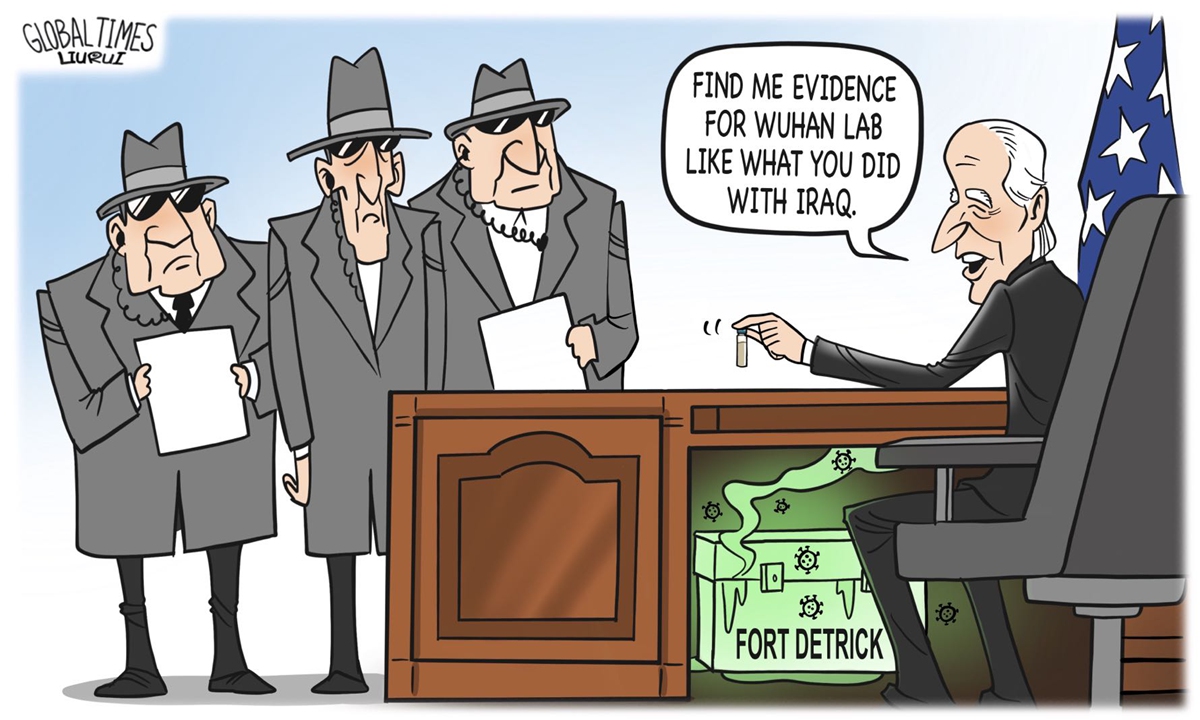 Illustration: Liu Rui/GT
Illustration: Liu Rui/GT
Clouds of suspicion
The international community clearly views the US, which has been hyping the "lab leak" theory and engaging in groundless attacks against China, as responsible for leaking the SARS-CoV-2, one insider told the Global Times.
A laboratory at the University of North Carolina (UNC) at Chapel Hill, led by the renowned US coronavirus expert Ralph Baric, is becoming, together with the infamous Fort Detrick lab, the focus of public suspicion in the search for the origins of the virus.
Baric's team is the authority when it comes to [coronavirus] research with widely recognized capability in synergizing and modifying coronaviruses, said Chinese Foreign Ministry spokesperson Zhao Lijian. He urged the US to invite WHO experts to investigate the UNC facility. "A probe into Baric's team and lab would clarify whether coronavirus research has created or will create SARS-CoV-2," Zhao said on Friday.
With a more mature environment of lab virus synthesizing and operating, as well as more virus leakage cases in history, the virus was obviously more likely leaked from the US labs if the "lab leak" claim is true, said Chinese biosecurity specialist Li (pseudonym), who works at a research institute in eastern China.
"We appeal to the WHO to put US labs, including the one located at UNC, into its Phase-II investigation," Li told the Global Times on Tuesday.
While the Chinese Foreign Ministry and Chinese scientists have called on the US to release data and medical records of US military personnel who fell ill during the world military games in Wuhan, some US media and people also raised concerns that the Pentagon did not test their soldiers attending the Wuhan games.
According to an opinion article in the Washington Post, athletes from countries including France, Germany and Italy have publicly claimed that they had contracted what they believed to be COVID-19 at the military games in Wuhan.
"In Washington, military leaders either dismissed it or weren't aware of it. Meanwhile, no one performed any antibody tests or disease tracing on thousands of athletes. No one even attempted to find out whether the games in Wuhan were, in fact, the first international pandemic super spreader event," read the opinion piece.
A Pentagon spokesperson said in an email that there was no screening because the Wuhan military games - held from October 18 to 27, 2019 - "was prior to the reported outbreak." The spokesperson cited December 31, 2019 as the critical outbreak day, the US political magazine American Prospect reported on June 30, 2020. Since that email, Pentagon officials have repeatedly declined to speak on or off the record on the subject.
In addition to suspicions on US biolabs and untested athletes, whether some of the patients of the mysterious vaping-related lung disease that swept through all of the 50 US states in 2019 also sparked more doubts, after Chinese scientists found that 16 e-cigarette or vaping use-associated lung injury (EVALI) patients were involved in viral infections, which indicates that they could have had COVID-19. Five of the cases were determined as "moderately suspicious."
"Why does the US remain silent? What's hidden there?" Chinese Foreign Ministry spokesperson Hua Chunying asked in a tweet on Wednesday, after more and more voices called for an investigation in the US, especially at its Fort Detrick lab.
Some US labs preserve samples of the viruses they uncover instead of reporting them, said Yang Zhanqiu, a virologist at Wuhan University. "Some samples are even held for decades," Yang told the Global Times.
Reject US-led politicization
On the next phase of origins study, the WHO said recently that member states agreed that the origins tracing should not be politicized and the WHO is having positive consultations with a large number of states, including China.
Mike Ryan, executive director of the WHO Health Emergencies Program, said at a press conference on Friday that the next stage origins study is building on the report of the Phase-I mission, in which many studies were proposed to go forward.
He said Chinese colleagues are implementing some of the studies raised in the report, and "we look forward to updates from colleagues from China and we expect to continue in China and a number of countries from around the world."
The Chinese health authority rejected WHO's Phase-II COVID-19 origins study in mid-July, calling it lacking respect to common sense and being arrogant to science amid rising politicized moves of the US government on the matter, as the WHO's plan was proposed when the US-led West intensified the politics-driven conspiracy about a "lab leak" theory and exerted political pressure on international scientists to give up their scientific position on the origins issue.
"We want to reassure colleagues in China that the process is and has always been driven by science," Ryan said, noting that everybody is calling for this.
There's widespread agreement among all our member states, let's not politicize the process, Ryan noted.
The Republicans' COVID-19 origins report simply repeated a slew of discredited conspiracy theories about the Wuhan Institute of ...
The US is back to control the virus origin-tracing process. But after all, since when does a bully ...
Should the World Health Organization (WHO) investigate the United States as part of the origin-tracing study of the ...
-What happened in Fort Detrick lab? -Is there any link between EVALI and COVID-19? -Will the US disclose data on ...
Related posts:
Update Online petition for Fort Detrick probe draws 20m signatures; China urges US to open UNC lab, disclose military games patients... ..







